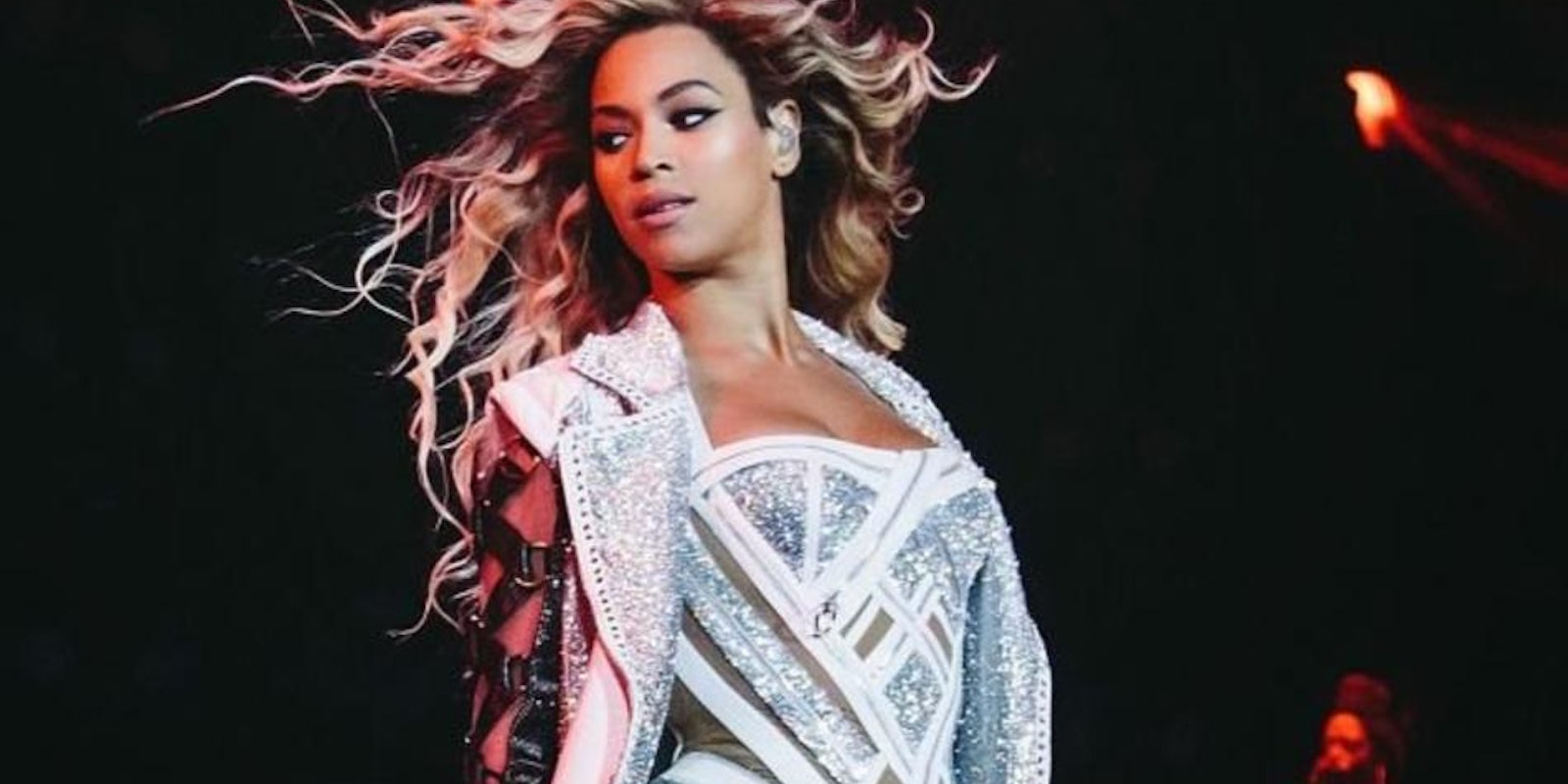Fans of Saturday Night Live were in for a surprise when the satirical comedy poked fun at racism in America this weekend.
In what might be one of the best SNL skits to come out recently, the show featured a parody of what happened when Beyoncé dropped her newest hit “Formation” and white people realized that their favorite guilty pleasure is (gasp!) black. Through a horror film-esque movie trailer titled, “The Day Beyonce Turned Black,” the sketch exaggerated white America’s shocked reaction to a video that promoted Black Lives Matter, highlighted the neglect of the government during Hurricane Katrina, and encouraged black people to embrace their afros and Jackson 5 nostrils.
“Maybe this song isn’t for us,” SNL comedian Bobby Moynihan said, to which castmate Cecily Strong retorts: “BUT USUALLY EVERYTHING IS!”
What’s funny is that the exaggerated responses the show depicted aren’t that far off from how a lot of white people reacted to Beyonce’s video. When the Grammy-award winning singer’s new song dropped, I heard everything from light criticism to people threatening to boycott the Super Bowl.
Fmr NYC Mayor Giuliani explains why he has a problem with #Beyonce’s #SuperBowl performance https://t.co/GUIe7hPVut
— CNN Tonight (@CNNTonight) February 11, 2016
https://twitter.com/occupycorruptDC/status/697034727560187904
Keep in mind, all this hoopla was simply over a catchy song that uplifts black people, particularly black women. But what I believe SNL was really trying to convey was that many white people are OK with artists when they’re black—but not too black.
Beyonce wasn’t the only target in the skit. Scandal star Kerry Washington’s race is also questioned, because “she’s on ABC,” yet a guy portrayed like a thug on the street is obviously black. SNL cast member Kenan Thompson even jokes that Beyoncé was “white” in The Pink Panther movie, but wasn’t in her hit song “Single Ladies.”
What I believe SNL was really trying to convey was that many white people are OK with artists when they’re black—but not too black.
The argument—held by many white, and even black people—that certain actions or characteristics can affect how people view a person’s race and ethnicity is pretty warped. What’s even worse is the fact that people of all colors are just now giving Beyoncé credit for being a black artist.
Fans idolize Beyonce for her hit songs. However, the second she reminds everyone that she’s not only a successful woman, but she’s a successful black woman, everyone loses their damn mind. When Queen B, a Houston native, debuts her own brand of social activism and wears her black pride on her sleeve, now there’s an issue.
The dichotomy of how white people treated Beyonce before versus after “Formation” is something I found very interesting, although I’m not surprised that a song with strong overtones of black and female empowerment didn’t sit too well with some people. I think the main takeaway of the SNL skit was that white America is unsure of what to do when black people take control of their stories and tell them on their own terms.
We’re in a period where we have powerful black artists, such as Beyonce, Kendrick Lamar, and Rihanna who aren’t afraid to voice the truth about how they feel black people are treated and portrayed not only by police, but by white America at large.
Let’s be clear, black people want something they can call their own without white America controlling or appropriating it. For Beyonce, “Formation” was the one space where she could unapologetically be herself. The reaction from white viewers, particularly white conservatives, on her song, music video, and celebration of black lives is proof that there’s an expectation that black artists have to cater to white expectations and white feelings.
If you’re someone who was uncomfortable with Bey’s new song because “you didn’t feel like you could relate to it,” I hate to break it to you, but that was kind of the point.
If you’re someone who was uncomfortable with Bey’s new song because “you didn’t feel like you could relate to it,” I hate to break it to you, but that was kind of the point.
As weird and surprising as this may sound, this song wasn’t meant to uplift white people because they weren’t the intended audience. “Formation” wasn’t made solely to educate white people or to garnish some sort of sympathy for #BlackLivesMatter. Instead, the song is a celebration of something that many white people have a hard time relating to, something SNL evoked quite beautifully.
White people can like Beyonce and her song and her image without freaking out that a black woman is unashamed to let the world know she is black, woke, and unashamed. Comedy skits such as SNL have the potential to strike a nerve and highlight some uncomfortable truths. But does that mean we should critique what in the end is just a music video and comedy skit? Or, should we instead listen and gain insight into issues we may not be familiar with?
While many people, including Fox News, seem to think Beyonce overstepped some sort of invisible boundary or delivered an offensive Super Bowl performance and music video, what they need to realize is that not everything is meant for white-only consumption—especially this song.
Alexandra Samuels is a third-year journalism major at the University of Texas at Austin. She is a breaking news correspondent for USA Today College. She enjoys discussions on race, politics, sexuality, and Chance the Rapper. Follow her on Twitter @AlexSamuelsx5.
Photo via hotgossipitalia/Flickr (CC BY 2.0) | Remix by Fernando Alfonso III
